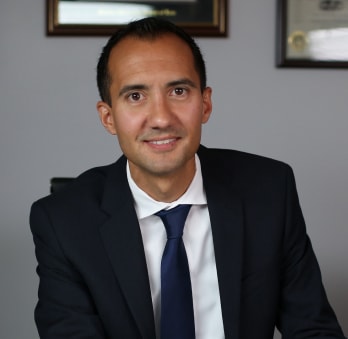
Seek Advice from an Experienced Criminal Defense Lawyer to Help You Get Through This Complicated Process
The Minnesota criminal justice system can be complicated. It can also be intimidating.
You may hear words you are unfamiliar with that leave you wondering things like, What is an omnibus hearing in Minnesota? Learning more about the process can help take some of the stress off of you.
An experienced Minnesota criminal defense lawyer like John Arechigo from Arechigo & Stokka will help you get through the system.
No defense attorney can promise a particular result in any case. However, you can rely on John’s extensive knowledge and experience to put you in a position to get the best results possible.
What Happens After an Arrest in Minnesota?
There are two ways you get called into court in Minnesota for a crime. The first is an arrest. Whether the police arrest you with or without a warrant, they will bring you to jail for booking and fingerprinting.
The law mandates that you must appear before a judge within 36 hours of your arrest. If your charge is a misdemeanor and you don’t go before the judge within 36 hours, you might get off with just a citation, or you could be released and charged at a later date.
Otherwise, you go to court for your first appearance to address your release from custody.
The other way the law gets people into court is through a summons. The court can issue you a summons and complaint. The summons specifies the date and time you have to go to court.
If you don’t go when instructed, the judge will issue a warrant for your arrest based on your failure to appear.
What Is the First Appearance?
After an arraignment for a misdemeanor, the defendant’s case proceeds to a pretrial conference or hearing. During this phase, both the prosecution and defense may exchange evidence and discuss potential plea bargains. If no plea agreement is reached, the case may proceed to trial. It’s crucial for the defendant to adhere to all court appearances as scheduled to avoid potential legal repercussions.
The first appearance is an important step in the Minnesota criminal justice system. At this initial hearing, the judge will inform you of your rights.
These rights are found in Rule 5 of the Minnesota Rules of Criminal Procedure and include:
- The right to remain silent and not talk to police;
- A warning that anything you say can and will be used against you in later court proceedings;
- The right to a lawyer, including the right for a lawyer to appear if police put you in a lineup;
- The right to talk with your lawyer about your case; and
- The right to a trial by jury, or the right to waive a jury and have a judge decide your case.
Also, the judge must ensure that you have a copy of your complaint and inform you of all of the charges pending against you.
The judge also addresses your jail status at the first appearance. The judge will set an amount of bail that enables you to be released pending the resolution of your case.
To be released, you will have to get someone to post the bond amount either alone or through the use of a bail bondsman.
In some cases, the judge may release you on your own recognizance, which means that you don’t have to post any money to get out of jail.
Whether you are let out with or without bail, the judge typically sets conditions of release that ensure you will come back to court to answer for your charges.
Conditions will depend on the specifics of the charged case and can include not having contact with certain people, or not using alcohol or controlled substances.
What Is an Omnibus Hearing?
Rule 11 of the Minnesota Rules of Criminal Procedure says exactly what an omnibus hearing is in MN. An omnibus hearing is also called a pretrial hearing or pretrial conference.
In short, at an omnibus hearing, the court addresses several issues depending on the charges before the court.
At an omnibus hearing, the judge considers all motions filed by either party related to:
- Probable cause;
- Evidentiary questions;
- Exchange of discovery;
- Admissibility of prior bad acts of the accused;
- Admissibility of prior sexual conduct, if applicable;
- Issues of Constitutional rights;
- Admissibility of relationship evidence, if applicable;
- Procedural problems;
- Aggravated sentencing considerations; and
- Any other issue that the court must resolve to ensure a fair trial.
The defendant can waive the omnibus hearing. However, it is advisable to hold the hearing so that you can better understand the prosecutor’s position on your case. You can also get a preview of the evidence.
When Does the Court Hold an Omnibus Hearing?
The court holds an omnibus hearing in felony and gross misdemeanor cases if the defendant did not enter a guilty plea at the first appearance. The court will start the omnibus hearing within 42 days of your first appearance.
However, the court could start it within 28 days if you had a second appearance before the court, or if you otherwise demanded a speedy omnibus hearing.
The court must hold the omnibus hearing in the district where the police allege the crime occurred.
The Probable Cause Determination
One of the most important functions of a judge at the omnibus hearing is to decide if probable cause exists to go forward with the case.
The prosecutor can call witnesses to testify. The defense has a right to call witnesses and cross-examine them as well. The judge can also take reliable hearsay evidence as part of the probable cause determination.
Keep in mind that probable cause is a low standard of proof. According to Rule 11, the judge has to decide if there is enough evidence to provide probable cause that the defendant committed a crime.
The judge should look at the fairness of sending a person to trial based on the evidence the prosecutor has.
The judge can dismiss a criminal complaint for lack of probable cause. However, the judge has no authority to dismiss an indictment for lack of probable cause under Rule 11.
Other Issues Decided at the Omnibus Hearing
The omnibus hearing is a tool for streamlining the case. The purpose of this hearing is to resolve motions and case issues early, in one efficient hearing. This avoids making the parties come back to court multiple times to address multiple issues.
Many motions can be made at this hearing, including:
- Evidence suppression motions;
- Other evidentiary motions;
- Non-evidentiary motions like motions to reveal confidential informants, motions to bifurcate the trial, and motions to consolidate or sever co-defendants at trial; and
- Discovery motions.
Resolving these issues early helps the lawyers to focus on meaningful plea negotiations because many uncertainties have been resolved.
Any motions that are not made by this time may be considered forever waived—unless the party bringing the motion late did not know of the issue or some other exception is found to be valid by the judge.
This hearing also gives the parties the opportunity to have a sentencing conference with the judge if you want to plead guilty. Also, the prosecution has to let you know if they plan on pursuing any sentencing enhancements.
As you can see, this is a very important hearing as it is when many issues are addressed and resolved prior to trial.
Therefore, you need a lawyer who knows what they’re doing to represent you, or you could lose out on valuable defenses.
Trial
The judge sets a trial date at the omnibus hearing. At a trial, you have the right to cross-examine witnesses, present evidence, participate in the selection of a jury, or you can waive a jury and let the judge decide your case.
You have the right to be present in the courtroom during your trial as well. Remember, a verdict of not guilty after trial means you are free and cannot face trial for those charges ever again.
Need More Information About an Omnibus Hearing in Minnesota? Call Arechigo & Stokka Today!
Call Twin Cities criminal defense lawyer John Arechigo today at 651-222-6603. He stands ready to fight for your rights as you face criminal charges.
Call or click to schedule your free consultation with award-winning criminal defense attorney John Arechigo.




